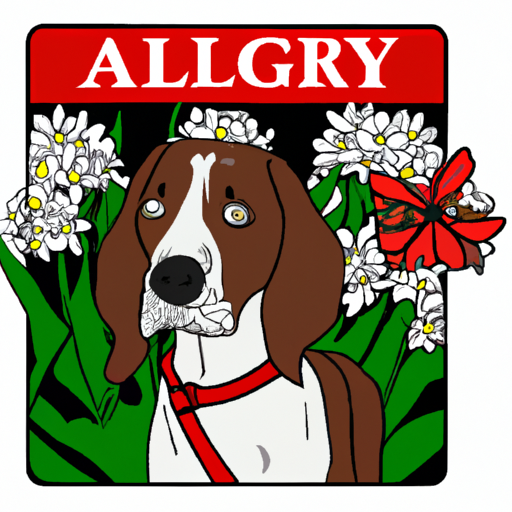As a caregiver, whether you’re a professional or a loving pet parent, there can be no higher priority than the safety and wellbeing of those under your care. When it comes to dogs, while their curiosity and playfulness are endearing, they can sometimes lead our furry friends into trouble – especially in the garden. So let’s dive into the world of plants that might cause allergic reactions in dogs.
H2: The Sneaky Snares of the Garden
The garden can be a minefield for your canine companion. From seemingly harmless flowers to toxic berries, the risks are abundant. Let’s look at some of the most common plants that might cause a reaction:
- Daffodils – The entire plant, especially the bulb, can cause vomiting and diarrhea.
- Tulips – The bulb can cause intense symptoms, including drooling, loss of appetite, depression, and convulsions.
- Azaleas – Consumption can lead to drooling, vomiting, diarrhea, and in severe cases, a drop in blood pressure and even death.
H2: Indoor Plants that Lurk with Danger
Not all threats are found outside. Certain houseplants can also pose a risk to your dog’s health. These include:
- Dieffenbachia (Dumb Cane) – Can cause oral irritation, excessive drooling, vomiting, difficulty in swallowing and intense burning and irritation of the mouth.
- Aloe Vera – While beneficial for humans, it can cause vomiting and diarrhea in dogs.
- Philodendrons – These popular houseplants can cause oral irritation, pain and swelling of mouth, tongue and lips, excessive drooling, vomiting, and difficulty swallowing in dogs.
H2: Plants to Avoid in Your Dog’s Diet
Dogs are known for their hearty appetites and sometimes, questionable choices in snacks. Here are a few plants that should never find their way into your dog’s diet:
- Grapes/Raisins – These can cause kidney failure in dogs.
- Onions and Garlic – They can lead to anemia by damaging red blood cells.
- Avocado – The persin in avocado can cause vomiting and diarrhea.
H2: The Ideal Dog-Friendly Garden
Creating a safe haven for your dog doesn’t mean you have to compromise on a beautiful garden. Here are some dog-friendly plants to consider:
| Dog-Friendly Plants | Why They’re Safe |
|---|---|
| Roses | While thorns can be a concern, roses themselves are non-toxic to dogs. |
| Sunflowers | They are non-toxic and their large, woody stems are typically not appetizing to dogs. |
| Marigolds | They are safe for dogs and can even keep certain pests away. |
H2: Frequently Asked Questions
Q1: Are there symptoms I should look for if my dog ingests a harmful plant?
A1: Yes, look out for excessive drooling, vomiting, diarrhea, changes in behavior, or difficulty swallowing.
Q2: What should I do if my dog ingests a harmful plant?
A2: Contact your vet immediately. If possible, bring a sample of the plant with you.
Q3: Can dogs be allergic to grass?
A3: Yes, some dogs can have an allergic reaction to grass, causing symptoms like itchy skin and inflamed paws.
Remember, as a caregiver, your vigilance can make all the difference in your dog’s health and happiness. So, keep your eyes open and your garden safe!



